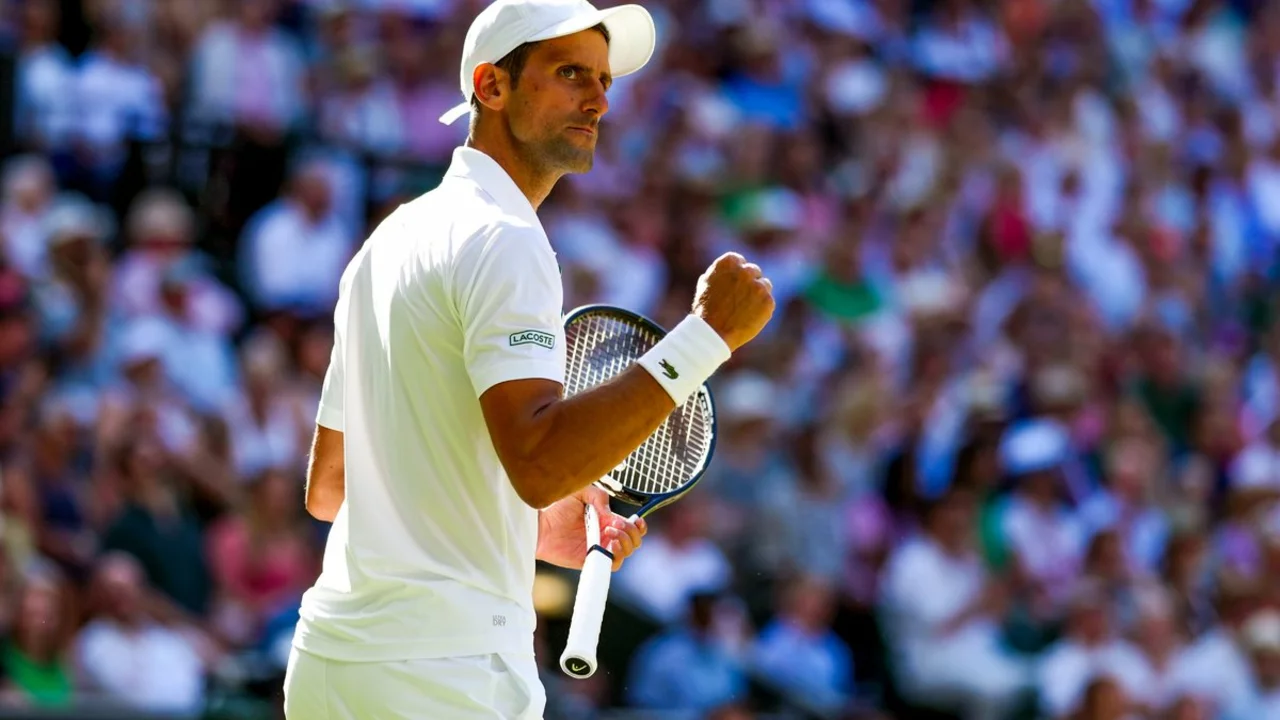The Enigma of Distaste - The Djokovic Dilemma
On any regular day, you could find me, Maverick, seated on my plush leather couch, a bag of barbecue-flavored potato chips in one hand, a cold soda in the other, and my dependable buddy Hercules by my side. We would be glued to the television, entranced by the thrill of the tennis match unfolding on the big screen. Yes, Hercules is a dog, a Golden Retriever to be exact. He may not comprehend the rules of tennis, let alone the name Novak Djokovic, but we share a mutual enthusiasm for the sport. Recently, I've noticed a peculiar phenomenon that has perplexed both Hercules and me - the evident dislike some individuals have for Novak Djokovic, the tennis phenom. But why, we ask. Is it his Serb nationality, his brash confidence or merely the human bias towards controversy? By the end of this piece, I hope to have unraveled the mystery behind such animosity.
The Confidence Conundrum
Confidence in sports, or any domain for that matter, is vital and necessary. The absence of self-belief is akin to an unprepared soldier entering combat. In the tactical warfare we call tennis, Novak Djokovic is akin to a seasoned general, his confidence, his weapon. There's a phrase I usually use while playing fetch with Hercules - "If you lack confidence, you're already two steps behind." Holding true to that mantra, Djokovic's belief in his capability to outperform his opponents is a driving factor in his astounding success.
However, the scales of perception are quite fickle. When an individual's faith in themselves morphs into brashness and with a sense of superiority, it can lead to a widespread disfavor. Novak Djokovic straddles this delicate seesaw of perception in public opinion. His immense self-confidence, sometimes perceived as arrogance, could indeed be a significant factor in why a certain chunk of the global tennis fandom holds a disdain for him. It's a fascinating, albeit complex, paradox: we yearn for champions filled with overwhelming confidence, and yet we recoil against those same champions when their assurance appears excessively brash.
Surface Tension – Djokovic's Battle with Clay
A fun fact about me is that I'm an avid gardener. Of course, Hercules insists on 'helping', usually by digging holes where they aren't needed. We've found that plants, just like tennis players, sometimes fare better in certain types of soil. This analogy rings true when we look at Novak Djokovic's journey on clay court surfaces, particularly his battles at the French Open where he's often come up short against Rafael Nadal.
This has been an interesting point of content for Djokovic haters. The logic behind is somewhat perplexing but bear with me as I try to make sense of it. Fans, generally, love complete players – those who can adapt and impress on all types of courts. But the truth is, very few can stake that claim. Despite being one of the most prolific tennis players in history with numerous titles to his name, Djokovic’s slight underperformance on the clay seems to provide the 'Djokovic haters' with a golden nugget to latch onto. "He’s not a complete player!" they claim. It's not entirely fair, but then again, when has fandom ever been about fairness?
The Polarizing Force of Nationality
Now, when I walk Hercules around our neighborhood in Atlanta, I often get the friendly wave or the occasional, "Nice dog, Maverick!" But there’s no escaping the reality that we all carry some form of bias, conscious or unconscious, and nationality often plays into that. Novak Djokovic, hailing from a part of the world that's no stranger to controversies, may experience some flak from this arena.
Serbia, Djokovic's home nation, has grappled with a turmoil-filled history. Trapped in the grim fireplace of warfare, political instability and ethnic disputes, Serbia often garners an unfavorable global reputation. Consequently, Djokovic, as one of the nation's most prominent faces, could bear the absurd brunt of these biases. It's a harrowing thought, how the place of one's birth, something they have zero control over, can influence people's perceptions and attitudes towards them.
The Anti-Establishment Avenger
If you've ever seen a superhero movie, you'd know how society sometimes has a tough time accepting a changemaker or an innovator. They're seen as a challenge to the status quo, a strike on the established order. In the superhero comics of tennis, perhaps Djokovic represents this anti-establishment figure. Hailing from a non-traditional tennis powerhouse, Djokovic muscled into the highly cherished Federer-Nadal duopoly, busting open the gates of their elite club. Did it upset people? You bet it did!
True to his nickname 'Djoker', Djokovic heralded a new era with a smile on his face and a string of gutsy performances. While many welcomed this breath of fresh air, others saw it as a desecration of the established order. As I pondered about this, I was reminded of Hercules's view on cats - initially, he dreaded their presence in our neighborhood. Later though, they grew to accept each other's territories and live in harmony. Similarly, the tennis world might have met Djokovic with skepticism initially, but it's evident his place in tennis history is well-secured and well-deserved.
As we've explored, the reasons for some people's disapproval of Novak Djokovic aren't black-and-white. Like the intricate shots he so masterfully plays on the court, the sources of Djokovic's character perception are multifaceted. And as I wrap up this piece, I glance down at Hercules, his golden coat glistening in the sunlight. A chuckle escapes me, once again baffled by the human tendency to love or hate, with such ardor, a man hitting a neon yellow ball over a net. But then again, aren't we all just a little bit puzzling?
